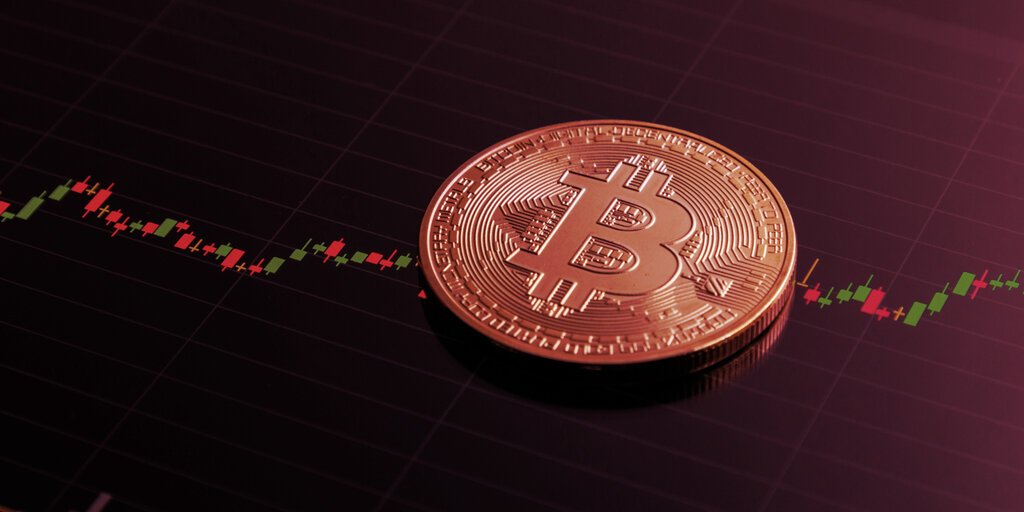We haven’t reached the bottom yet.
That’s the conclusion that analysts at the Huobi Research Institute, the research arm of the Huobi cryptocurrencies exchange, reached in a newly released report.
In their report, titled “Is Another Black May Coming,” Huobi researchers Barry Jiang and Hanson Chan wrote that, when it comes to Bitcoin“the market bottom has yet to come, and value investors should hold off on buying.”
Huobi’s reasoning comes from the argument that the market bottoms for Bitcoin can be determined by examining its Net Unrealized Profit/Loss (NUPL) percentage, which is the difference between Bitcoin’s market cap and its realized cap divided by its market cap.
Bitcoin’s realized cap represents the realized value of all coins in the network, based on the price at which each unspent transaction output was last moved. Realized caps do not factor in lost or dormant coins.
The NUPL has five different classifications: euphoria/greed, belief/denial, optimism/anxiety, hope/fear, and capitulation. The capitulation phase is when the price is at its lowest, and thus is the best time for buyers to jump in, according to this reasoning. Based on Bitcoin’s NUPL chart, the asset is currently in the fear classification and therefore has likely not yet reached its bottom price for the current cycle.
As on-chain data analytics platform CryptoQuant‘s Bitcoin NUPL assessment explains, “Investors are [currently] in a Fear phase where they are currently with unrealized profits that are slightly more than losses.”
Huobi’s Jiang told Decrypt via email that he estimates the bottom for Bitcoin to be somewhere between $20,000 to $25,000. Yuya Hasegawa, market analyst for Japanese cryptocurrency exchange Bitbank, has a less optimistic outlook.
“From the previous two capitulation phases, we can see that the price dropped from about 40-50% after NUPL turned orange [to Hope/Fear]. So, if the pattern replicates itself, the current bitcoin price could go as low as about $15k. This is somewhat in line with my technical analysis published on Monday (although my price target is a little lower: $12.2k),” Hasegawa told Decrypt via email.
Bitcoin today broke firmly below $30,000, hitting a low of $28,170—its lowest price since December 2020.
Benjamin Cowen, a crypto analyst and CEO of quantitative market analysis platform Into The Cryptoverse, told Decrypt that based on a number of different metrics, “there is still more potential downside” in the current market.
“The running 1 year [return-on-investment] shows there could be more downside,” Cowen said, referring to a chart with data from analytics firm CoinMetrics, adding that the number of long-term Bitcoin holders (longer than six months) also plateaued a few months ago.
Public interest in cryptocurrencies also appears to be on the decline for now, as data pulled from social media analytics site Social Blade shows the top crypto YouTube channels are losing viewers across the board.
But regardless of where the retail investor stands on crypto, some analysts believe that on-chain metrics like the NUPL aren’t useful at all in this current climate.
“To be honest, I find on-chain metrics pretty useless in the current market, as Bitcoin is clearly tightly connected to the stock market during this fearful market,” Bendik Norheim Schei, head of research at Arcane Research, told Decrypt via email.
“The correlation with Nasdaq is at an all-time high, and investors are putting Bitcoin in the same basket as risky tech stocks,” Schei added.
So how can investors determine where Bitcoin’s price might go in the coming weeks and months?
“The stock market is the leading indicator for Bitcoin right now,” Schei said. “The current $30,000 level that is being tested this week has been a fairly strong support level in 2021 and is currently holding, but I wouldn’t put my money on that if the stock market continues down,” he said.
GlobalData Senior Analyst Lil Read shared a similar view, but also argued that cryptocurrencies aren’t currently working as an inflation hedge.
“Many crypto investors view the fact that they are not linked to the value of traditional assets, such as gold, shares in a company, or fiat currencies, as intrinsic to the cryptocurrency attraction and value proposition,” Read told Decrypt via email. “Some crypto bulls even looked to cryptocurrencies as an asset to hedge against inflation, but that clearly isn’t working—the reality is that the past few weeks at least have seen cryptocurrencies tracking broader market trends.”
Read cited the US Federal Reserve’s recent decision to raise interest rates as the main trigger for the downtown, adding that “in a rising interest rate environment, investors generally become more risk-averse.” In Read’s view, “pricing dynamics in crypto will likely reflect the broader market trends until we see a new level of stability—which may take some months or even years.”
Disclaimer
The views and opinions expressed by the author are for informational purposes only and do not constitute financial, investment, or other advice.
The best of Decrypt straight to your inbox.
Get the top stories curated daily, weekly roundups & deep dives straight to your inbox.
